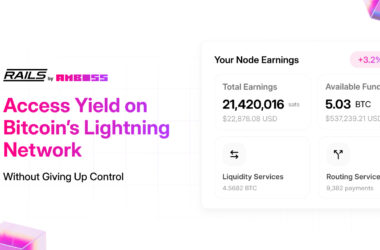The fusion of finance and technology—fintech—has always been at the cutting edge of innovation. With the emergence of quantum computing, the fintech sector is set for another leap forward. This technological advancement is not just about enhanced computational capabilities; it’s about the creation of new opportunities and fintech jobs that didn’t exist before. Quantum computing is driving demand for specialized skills, leading to a surge in fintech jobs focused on leveraging this technology.
But first, what on earth is quantum computing?
Table of Contents
What is Quantum Computing?
Quantum computing is a groundbreaking technology that leverages the principles of quantum mechanics to perform computations at speeds unattainable by classical computers. Unlike traditional bits that represent data as either a 0 or a 1, quantum bits—or qubits—can exist in multiple states simultaneously thanks to a phenomenon called superposition. Additionally, qubits can become entangled, allowing instantaneous correlations between them regardless of distance.
For the fintech sector, this means quantum computing can process vast amounts of financial data more efficiently, optimize complex algorithms for risk assessment and portfolio management, and enhance cryptographic methods. By harnessing this technology, fintech professionals can tackle problems that were previously considered unsolvable, leading to innovative solutions and new fintech jobs that drive the industry forward.
Quantum Computing’s Influence on Fintech Jobs
Quantum computing is still in its infancy, which means that professionals who can upskill appropriately will be in a good position to take advantage of a relatively new sector, with innovative technology that in near future is going to change everything.
Creation of New Roles
- Quantum Financial Analysts: As quantum algorithms become integral in financial modeling, there will be a growing need for analysts who understand both quantum computing and finance. These fintech jobs involve developing and interpreting quantum-based financial models.
- Quantum Risk Specialists: With quantum computing enhancing risk assessment, professionals are required to design and manage quantum risk models. This is creating fintech jobs that blend risk management expertise with quantum computing knowledge.
- Quantum Cryptography Experts: The need for secure financial transactions in the quantum era will generate fintech jobs centered around developing quantum-resistant cryptographic methods.
Transformation of Existing Roles
- Software Developers: Traditional developers are now upskilling to understand quantum programming languages like Q# and Qiskit. Fintech jobs for developers now often require knowledge of quantum algorithms.
- Data Scientists: The ability to process and analyze large datasets using quantum computing is changing the role of data scientists. Fintech jobs in this area now demand familiarity with quantum data processing techniques.
- Cybersecurity Professionals: As quantum computing poses new threats to data security, cybersecurity roles are evolving. Fintech jobs now include positions focused on safeguarding against quantum-based cyber threats.
Demand for Specialized Skills
The rise of quantum computing in finance has led to a skill gap, which the industry is eager to fill. Fintech jobs now often list the following skills as requirements:
- Quantum Algorithm Design: Understanding how to create algorithms that can run on quantum computers.
- Quantum Programming: Proficiency in languages and tools specific to quantum computing.
- Interdisciplinary Knowledge: A blend of expertise in finance, quantum physics, and computer science.
Educational Initiatives and Training Programs
To meet the demand for these new fintech jobs, educational institutions and companies are developing programs:
- University Courses: Specialized degrees and courses in quantum computing applied to finance.
- Professional Certifications: Certifications that validate expertise in quantum computing for fintech applications.
- Corporate Training: Companies are investing in training their workforce to fill fintech jobs that require quantum computing skills.
Opportunities for Career Advancement
Professionals in the fintech sector can leverage this shift to advance their careers:
- Early Adoption Advantage: Those who upskill early position themselves as pioneers in the field, making them prime candidates for the most sought-after fintech jobs.
- Higher Compensation: Specialized fintech jobs that require quantum computing skills often come with higher salary packages due to the expertise involved.
- Leadership Roles: As teams dedicated to quantum computing initiatives grow, leadership positions will emerge, providing career growth opportunities.
Impact on the Fintech Industry
The integration of quantum computing is not just creating fintech jobs but is also reshaping the industry:
- Innovation Drive: Companies are investing in research and development, leading to more fintech jobs focused on innovation.
- Competitive Edge: Firms with quantum computing capabilities gain an advantage, prompting others to create fintech jobs to catch up.
- Collaborative Ecosystems: Partnerships between tech companies and financial institutions are forming, generating fintech jobs that operate at this intersection.
Challenges in Filling Fintech Jobs
While the opportunities are abundant, there are challenges:
- Talent Shortage: The rapid growth of quantum computing applications has outpaced the availability of skilled professionals for fintech jobs.
- Educational Lag: Academic institutions are still developing curricula, leading to a time gap in producing qualified candidates for fintech jobs.
- Retention Issues: High demand for skilled professionals leads to competition among firms, making retention in fintech jobs a challenge.
The Future of Fintech Jobs in the Quantum Era
The trajectory suggests a sustained increase in fintech jobs related to quantum computing:
- Long-Term Demand: As quantum computing becomes more mainstream, fintech jobs will continue to evolve and expand.
- Global Opportunities: Countries investing heavily in quantum technologies will become hotspots for fintech jobs.
- Continuous Learning: Professionals will need to engage in lifelong learning to stay relevant in fintech jobs.
Conclusion
Quantum computing is not just a technological advancement; it’s a catalyst for change in the fintech job market. It is creating new fintech jobs, transforming existing ones, and necessitating a new set of skills and knowledge. For professionals in the fintech sector, this presents both a challenge and an opportunity. Embracing this change by acquiring the necessary skills will open doors to exciting fintech jobs that are at the forefront of innovation.


















Recent Comments